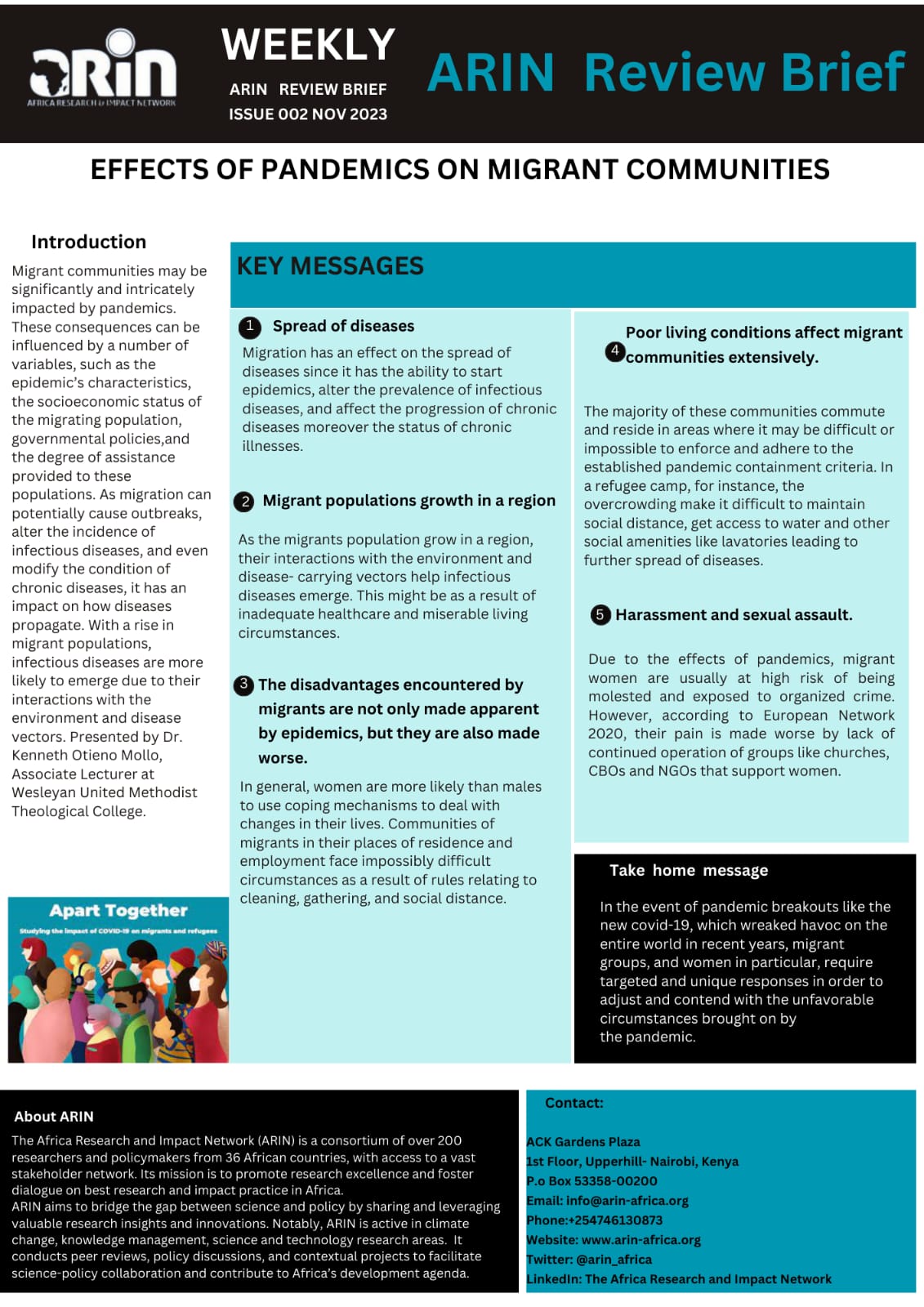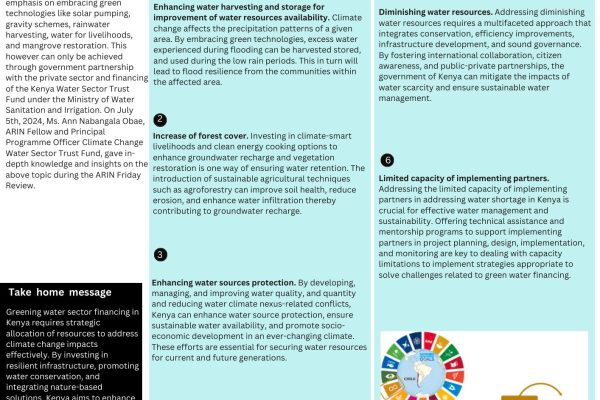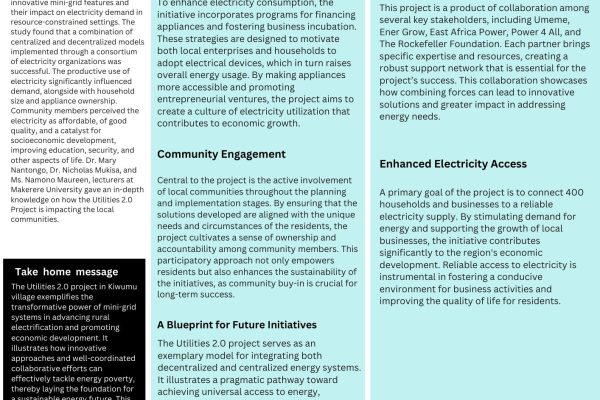INTRODUCTION
Migrant communities may be significantly and intricately impacted by pandemics. These consequences can be influenced by a number of variables, such as the epidemic’s characteristics, the socioeconomic status of the migrating population, governmental policies, and the degree of assistance provided to these populations. As migration can potentially cause outbreaks, alter the incidence of infectious diseases, and even modify the condition of chronic diseases, it has an impact on how diseases propagate. With a rise in migrant populations, infectious diseases are more likely to emerge due to their interactions with the environment and disease vectors. Presented by Dr. Kenneth Otieno Mollo, Associate Lecturer at Wesleyan United Methodist Theological College, on June 16, 2023, the ARIN weekly mentoring lecture served as the inspiration for this evaluation.
Vital Messages
Migration has an effect on spread of diseases since it has the ability to start epidemics, alter the prevalence of infectious diseases, and affect the progression of chronic diseases moreover, the status of chronic illnesses.
As migrant populations grow in a region, their interactions with the environment and disease-carrying vectors help infectious diseases emerge. This might be as a result of inadequate healthcare and miserable living circumstances.
The disadvantages encountered by migrants are not only made apparent by epidemics, but they are also made worse. In general, women are more likely than males to use coping mechanisms to deal with changes in their lives. Communities of migrants in their places of residence and employment face impossibly difficult circumstances as a result of rules relating to cleaning, gathering, and social distance.
Poor living conditions affect migrant communities extensively. The majority of these communities commute and reside in areas where it may be difficult or impossible to enforce and adhere to the established pandemic containment criteria. In a refugee camp, for instance, the overcrowding make it difficult to maintain social distance, get access to water and other social amenities like lavatories leading to further spread of diseases.
Harassment and sexual assault. Due to the effects of pandemics, migrant women are usually at high risk of being molested and exposed to organized crime. However, according to European Network 2020, their pain is made worse by lack of continued operation of groups like churches, CBOs and NGOs that support women.
Conclusion
In the event of pandemic breakouts like the new covid-19, which wreaked havoc on the entire world in recent years, migrant groups, and women in particular, require targeted and unique responses in order to adjust and contend with the unfavorable circumstances brought on by the pandemic.




